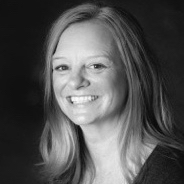Rascals case in brief
In the beginning, in 1989, more than 90 children at the Little Rascals Day Care Center in Edenton, North Carolina, accused a total of 20 adults with 429 instances of sexual abuse over a three-year period. It may have all begun with one parent’s complaint about punishment given her child.
Among the alleged perpetrators: the sheriff and mayor. But prosecutors would charge only Robin Byrum, Darlene Harris, Elizabeth “Betsy” Kelly, Robert “Bob” Kelly, Willard Scott Privott, Shelley Stone and Dawn Wilson – the Edenton 7.
Along with sodomy and beatings, allegations included a baby killed with a handgun, a child being hung upside down from a tree and being set on fire and countless other fantastic incidents involving spaceships, hot air balloons, pirate ships and trained sharks.
By the time prosecutors dropped the last charges in 1997, Little Rascals had become North Carolina’s longest and most costly criminal trial. Prosecutors kept defendants jailed in hopes at least one would turn against their supposed co-conspirators. Remarkably, none did. Another shameful record: Five defendants had to wait longer to face their accusers in court than anyone else in North Carolina history.
Between 1991 and 1997, Ofra Bikel produced three extraordinary episodes on the Little Rascals case for the PBS series “Frontline.” Although “Innocence Lost” did not deter prosecutors, it exposed their tactics and fostered nationwide skepticism and dismay.
With each passing year, the absurdity of the Little Rascals charges has become more obvious. But no admission of error has ever come from prosecutors, police, interviewers or parents. This site is devoted to the issues raised by this case.
On Facebook
Click for earlier Facebook posts archived on this site
Click to go to
Today’s random selection from the Little Rascals Day Care archives….
Click for earlier Facebook posts archived on this site
Click to go to
Today’s random selection from the Little Rascals Day Care archives….
You had to have been there (or did you?)
Sept. 25, 2013
“Peer group pressure… is a factor that should be considered when there is an allegation of sexual abuse involving multiple victims. Children in Edenton who never attended the day care, but who had peers who attended, claimed to have been abused at the day care.
“During her testimony for the defense, Dr. Maggie Bruck described a scientific study in which two actors went into a classroom of 28 children to give a talk. During the talk one of the actors knocked a large birthday cake off a piano. Seven children had been removed from the room and did not observe the event. Later when the children were interviewed six of the seven children who had not been present not only claimed to have been there but described the event as if they had been present.”
– From “Evidence Issues and ‘Lessons’ from State v. Kelly: Litigation of Allegations of Child Sexual Abuse” by Jeffrey L. Miller and W. Michael Spivey, presented at the 6th annual North Carolina Criminal Evidence Seminar, UNC School of Law (April 16, 1993)
Is Finkelhor now less panicked by day cares?

unh.edu
David Finkelhor
Feb. 3, 2016
“A new survey finds that adults at school, day care and organizations such as churches and scouting groups are less likely than relatives to abuse or mistreat children.
“In general, organizations that serve young people ‘do not look like particularly risky environments,’ said study co-author David Finkelhor, director of the University of New Hampshire’s Crimes Against Children Research Center. This contradicts perceptions by some people who ‘think these are magnets for molesters,’ he said.”
– From “Child Abuse at Daycare, Youth Groups Rarer Than Thought: Survey” by Randy Dotinga in the Northwest Indiana Times (Feb. 2)
Surprising to see Dr. Finkelhor dismiss the notion of day cares as “magnets for molesters,” given that his own overwrought “Nursery Crimes: Sexual Abuse in Day Care” (1988) was an influential text in spreading the moral panic.
How did he determine back then whether sexual abuse had actually occurred? “If at least one of the local investigating agencies had decided that abuse had occurred and that it had happened while the child was at a day-care facility….then we considered the case substantiated.” In other words, one supposed “red flag” sighting from Brenda Toppin was certification enough.
As recently as 2012, when I queried Dr. Finkelhor about his beliefs past and present, he denied being “an authority on the validity of claims” that he had laid out with such credulity in “Nursery Crimes.”
![]()
Embarrassed prosecutors, where are you?

theintercept.com
Jordan Smith
April 16, 2016
“To many in the criminal justice system, it is now a source of embarrassment that there was ever a time when police and prosecutors were convinced that bands of Satanists had infiltrated the nation’s day care centers in order to abuse young children. Yet in the (Fran and Dan Keller case), which I investigated for the Austin Chronicle back in 2009, I was startled to hear both a veteran cop and a prosecutor say they still believed in even the most absurd of the children’s allegations….
– From “Convicted of a Crime That Never Happened: Why Won’t Texas Exonerate Fran and Dan Keller?” by Jordan Smith at the Intercept (April 8)
![]()
Maybe those day-care crimes just never happened?

Lee
Jan. 22, 2018
“Sex offenders have a relatively low rate of committing the same sex crime after being released from prison. Yet policymakers often base policies on rearrest rates or the fear that sex offenders are more likely than other convicted criminals to commit the same crime after release….”
– From “Justice Alito’s misleading claim about sex offender rearrests” by Michelle Ye Hee Lee in the Washington Post (June 21, 2017)
As far as I’ve been able to tell, not a single one of the defendants in the Little Rascals, McMartin, Fells Acres, Wee Care, etc., cases has been accused of later sexual offenses – or had been accused of earlier offenses. How could the serial perpetrators of such outrageous crimes possibly have avoided recidivism for a quarter-century?
![]()











0 CommentsComment on Facebook